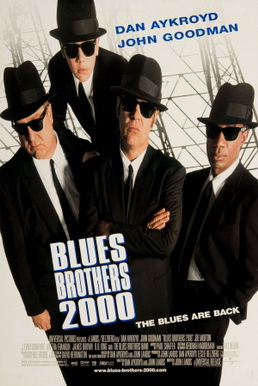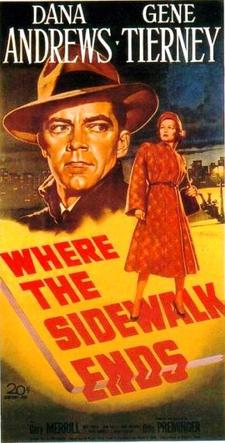When The Blues Was
Dues-Dan Ackleroyd’s “Blues Brothers-2000” (1998 ) With “Blues Brothers” In Mind
-A Film Review
DVD Review
By Zack James
Blues
It is not often that I,
or anybody else at this publication has to “fight” over an assignment from Greg
Green but in the case of the film under review Blues Brothers-2000 we were begging to be picked. (Usually reviewers
are “running away from assignments like when Greg had his big idea that to “expand”
our audience, to reach out to the youth we should start running reviews of
Marvel/DC Comics film productions of their cohort of super-heroes and most of
the older writers bucked before some buckled under or when he thought it would
be a good idea to write book reviews of Harlequin-type romance novels. You get
my drift.) Starting with older writers like Seth Garth, Josh Breslin and Sam
Lowell who cut their teeth on the blues, country and urban, back in the early
1960s when what is now called classic rock and roll ran out of steam for a
while and they were looking for something that spoke to their teen angst and
alienation, what now would be called in the age of identity politics their
oppression. Not only had they cut their teeth on the blues but when former site
manager, then called administrator, Allan Jackson, several years ago put
together a huge reflection series on the roots of rock and roll and such they
were lined up overtime to work the project. A project that new site manager
Greg had the sense to do an encore presentation of having the banished Jackson
do the new introductions.
Of course no one from
the older set, the 1960s cut their teeth set, picked up the blues on their own
but had been guided along that path, as usual by Peter Paul Markin, the mad
monk of their corner boy crowd in growing up poor Acre section of North
Adamsville and something in the sound spoke to them. (In the interest of
transparency which seems to be the watchword these days in all kinds of
situations where before your word was your bond Markin always called Scribe was
a very close friend of my oldest brother Alex but I was just too young being
ten years younger to really remember much less be influenced by him like Alex
and his crowd were.) That was the present at the creation tribe, the tribe that
looked elsewhere when their foundation rock music crumbled for a while. Moving
along to guys like me, not many of them here at this publication whatever reason Allan had to keep the older
guys around him especially a couple of years ago when he went over the deep-end
with 50th anniversary commemorations of every odd-ball event of their
youth we grabbed onto the blues in the early 1980s when rock took another
hiatus and we were scrambling from outlaw country music to Cajun-Zydeco and
Western Swing to have a sound that spoke to us. A final grouping would include
gals like Leslie Dumont and Laura Perkins, maybe Minnie Moore when she worked
here, who didn’t live or die by the blues but who came to appreciate the sound
second hand from their respective associations, their companionships is I think
the word they use, with Josh Breslin and Sam Lowell. I won the “prize” for the
very simple fact that I had recently written a review of the Neville Brothers
and how Cajun-Zydeco music has been an important, if temporary, waystation in
my own teen alienation and angst moments.
Maybe I should dig down
a little deeper to explain how a retro-review of this film came about. Somebody
mentioned that they had decided to watch the now ancient Saturday Night Live in order to check out Alex Baldwin’s rabid
impersonation of one Donald J. Trump, allegedly the President of the United States
or POTUS in tweet speak. Discussing that sent-up around the office water cooler
one morning brought up, I think by Bart Webber, the start of the show back in
the early 1970s with such now iconic comedians as Bill Murray, Steve Martin,
Dan Ackleroyd and of course the late, lamented John Belushi. And that of course
led to a discussion of the original Blues
Brothers film where under the guile of an off-the-wall comic script John
and Dan paid homage to the blues influences that had formed parts of their respective
personas. The madcap adventures of the pair and a supporting cast of such
blues, rhythm and blues, and classic rock and roll greats as Cab Calloway,
James, please, please, please Brown, the recently passed on Matt “Guitar”
Murphy and show-stopper Aretha Franklin (who came to the genre via her deep
gospel roots) drove most of the action. Since that film had already been
reviewed (by Seth Garth) the sequel was up for grabs once somebody checked the
archives and found that former site manager Allan Jackson had not assigned
anybody to do the film.
Now a sequel, especially
of an iconic film like Blues Brothers
is a tough nut to follow although Hollywood seldom misses a chance to cash in
on a blockbuster, and the producers Dan and John Landis (who co-wrote and directed
both productions and again in the interest of transparency the latter who I
worked with in the old Boston days at places like The Real Paper and the Phoenix)
don’t really try to expand on the original concept. Part of the problem
being, as dramatically pointed out in the front-piece dedication, that given
the eighteen year interval between productions John Belushi, Cab Calloway and
John Candy had all passed away.
That problem aside a certain
context has to be provided and some continuity so naturally Dan, Elwood Blues,
had to take a beating once he got out of stir in front of the old witch nun who
gave the brothers hell when they were growing up in her orphanage. And a runt
tagalong whom Elwood was supposed to “mentor.” Jesus was she totally crazy by
then.
As the film opens once Elwood
got out of that big house, got out of stir for whatever scam he got caught red-handed
at, he automatically thought about starting up the band again. That gathering
of the old crowd will drive the action for a while as these guys have grown
long in the tooth and have “settled” down. But Elwood is persuasive, or maybe
he was preaching to an already willing choir. With the addition of an out of
work bartender at a strip club owned by one of the former band members played
by John Goodman things are on the move. Almost. We need a short, well maybe not
so short, diversion to put up a “brother,” a long lost son of old long gone Cab
Calloway from his youth before he chained himself to that fateful orphanage and
played “father” to the those two reprobates. Problem is this son is total
Illinois state cop, a commander, and has no known DNA from papa on the blues
scene. But he got “religion” at an out of doors revival stocked with plenty of
well-known gospel singers- and James please, please, please Brown so before the
end we have four men in black, the order of the day “uniform” for blues guys
from a certain period. Well maybe three and one half, with the runt on that
number thing.
Getting back on top
though in the music game no matter the genre is a tough game and Elwood and mob
slogged through the usual backwoods stops before hitting some pay-dirt in a
battle of the bands down in the swamps presided over by some voodoo mama. A
truly scary woman to set the heart beating. This is really what the film is all
about-the homage to then still standing blues greats. The competition, a motley
crew called the Louisiana Gator Boys just happens to be made up of B.B. King,
Eric Clapton, Taj Majal, Junior Wells, Bo Diddley, Charles Musselwhite, Gary
“U.S” Bonds, and a number of other lesser blues lights all first come to light
for this reviewer via that blues records collection of my brother Alex cobbled
together by the Scribe’s intelligence. In short, the last serious aggregation
of blues greats still standing-then. Needless to say, Elwood and crowd who have
their own not inconsiderable list of known blues greats like the late Matt
Murphy lose to the “pros.”
The sad part of viewing
this film at this remove is that many of the players seen in this sequel have
also subsequently passed on headlined by B.B. King, Bo Diddley, Koko Taylor,
and James Brown. My question, one which I intent to ask Alex when next we meet,
is who will continue the tradition once that small coterie of white, mainly
British blues artists like Eric Clapton from his youth fade from the scene as
well. See this one to see what it was like when women and men played the blues
for keeps. For when the saying “the blues was dues” meant everything.


